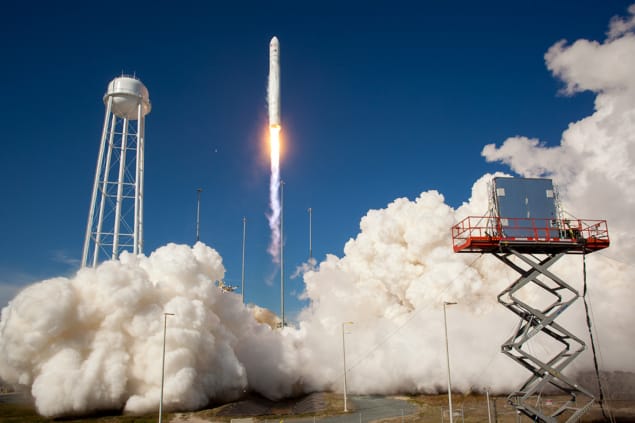
The US has released its first strategic framework for space diplomacy. The 37-page document, issued by the US Department of State, outlines the intention to â€Å“build international partnerships for civil and national security spaceâ€ÂÂ. It calls for the creation of a â€Å“rules-based international order†for outer space as well as for the US government to protect the country from â€Å“space-enabled threatsâ€ÂÂ.
The document points out that the US private sector is revolutionizing the use of outer space with new technologies and business models. â€Å“The number of space-faring nations has dramatically increased,†the document notes. â€Å“Countries without current launch capacities are investing in space-based assets and infrastructure.â€ÂÂ
A recent estimate suggests that the global space economy was worth $469bn in 2021. As a result of the growth, the framework calls for the responsible stewardship of outer space and to â€Å“maximize the benefits of the growing space economy for current and future generationsâ€ÂÂ.
The framework advocates actions across â€Å“three pillarsâ€ÂÂ. One involves advancing US space policy and programmes internationally while reducing the potential for conflict. The second is to use US space activities for wider diplomatic goals such as climate change, while the third is to give the state department’s employees the skills to â€Å“pursue space-related policy objectivesâ€ÂÂ.
The document also calls for the formation of robust multilateral coalitions such as the Artemis Accords – the agreement among NASA and its equivalents in partner countries on principles that guide lunar exploration.

Space for all: here are some of the huge commercial opportunities away from Earth
Tom Stroup, president of the Satellite Industry Association, welcomes the report’s â€Å“appreciation for the need for both traditional diplomacy as well as engagement with the US and worldwide commercial space stakeholdersâ€ÂÂ.
Meanwhile, NASA has awarded Blue Origin – the space venture of Amazon founder and Washington Post owner Jeff Bezos – a $3.4bn contract for the third 21st-century human landing on the Moon. NASA has scheduled the launch, tagged Artemis V, no earlier than September 2029. Elon Musk’s SpaceX has the contract for the first two lunar landings in this series.

